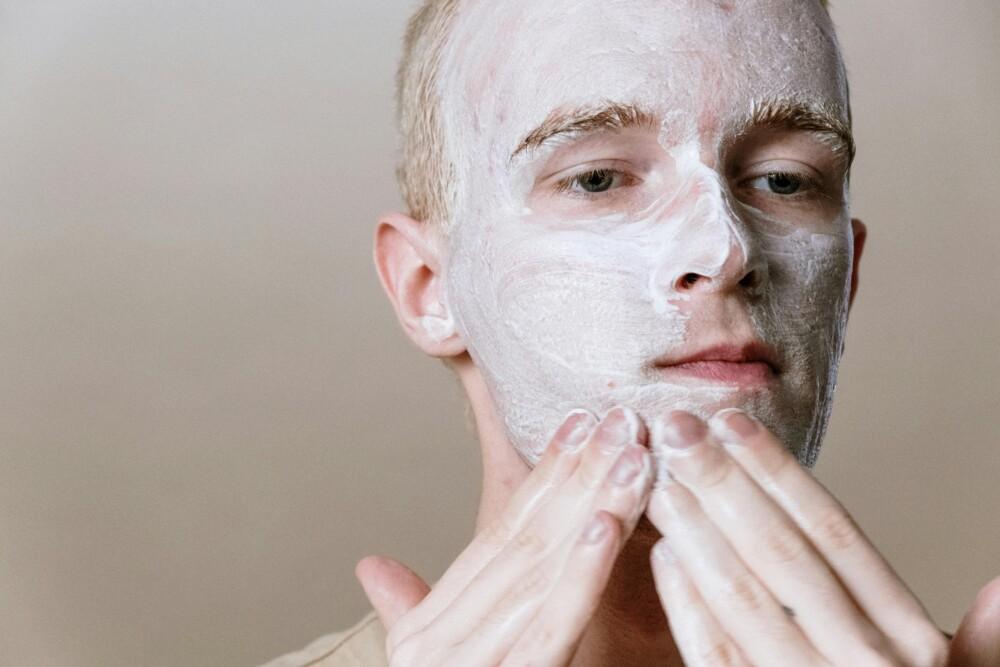Why Your Gut May Be the Reason for Your Acne
The gut-skin axis in naturopathic medicine shows that a microbiome imbalance is directly responsible for many acne issues. It causes inflammation and hormonal disruption, making topical or pharmaceutical treatments commonly useless or have low effectiveness.
Naturopathic remedies such as herbs, vitamins, minerals, nutrient dense foods, and personalized detox help obtain clear skin. They go after the root cause and restore gut balance, bypassing the side effects of conventional medicine. This is useful in areas like Manhattan, where pollution and processed diets make acne worse.
Most gut-related acne conditions are treated with general probiotics, but naturopathic support goes even further. A Naturopathic doctor will help to make you a unique plan, especially if you are a NYC resident who is exposed to environmental toxins and stress.
How Does the Gut-Skin Axis Explain Acne Breakouts?
The gut-skin axis explains acne breakouts because the intestinal permeability influences skin inflammation. This positions the gut as a hidden driver underneath the surface symptoms.
The gut microbiome is responsible for managing absorption and communicating with the immune system. When there’s a microbiome imbalance, the gut doesn’t flush out those toxins.
They end up being absorbed in the weakened gut lining (common with Leaky Gut Syndrome), overloading the lymphatic system. The body tries to flush it out through alternative routes, hence the toxins coming out of the skin, causing acne.
Studies at the State University of New York Downstate Medical Center show that 54% of acne patients have intestinal microflora imbalances.
Naturopathic gut testing helps determine if the bacterial population feeds the acne pathogenesis process. It looks for details such as inflammatory cytokines to determine the root cause.
Why Can Dysbiosis in the Gut Trigger Systemic Inflammation Leading to Acne?
Dysbiosis triggers systemic inflammation, leading to acne because the bacterial overgrowth harms the gut lining. This causes the production of endotoxins, which enter your bloodstream and make the immune system overreact.
Below are some pathways that link dysbiosis and acne, along with commonly used natural modulators:
- LPS infiltrations– supported with intestinal binders and curcumin
- T-Cell dysregulation, supported with Boswellia and targeted probiotics
- NF-kB signal activation, supported with Boswellia extract
- TNF-α and IL-6 overproduction, supported by curcumin as well
- Imbalanced Butyrate production, supported with prebiotics
Naturopaths see the condition as an inflammatory imbalance when they identify dysbiosis as the root cause of acne.
What Part Does Small Intestinal Bacterial Overgrowth (SIBO) Play in Persistent Acne?
Small Intestinal Bacterial Overgrowth (SIBO) causes nutrient deficiencies and toxin accumulation. Both directly affect skin health and lead to breakouts. Studies at the Medical University of Lublin on bacterial overgrowth recognition show that up to 22% of the population has some form of SIBO.
SIBO overgrowth strains detox pathways, causing the skin to become a second elimination source. Since this affects estrogen and metabolism, you can expect symptoms like cystic acne, irritated skin, and acne flares after meals, as well as hormonal shifts. The gut has plenty of connections with hormonal factors in skin health.
Naturopaths often address SIBO with antimicrobial herbs, including berberine. This is not all though. The Naturopathic doctor will discern why you have SIBO in the first place, work on the cause and also restore gut function through targeted health plans. The goal is to restore nutrient assimilation and reduce pathogenic overgrowth. This offers a targeted solution for those who are not seeing results with their acne.
What Gut Imbalances Are Most Linked to Acne in Women?

Hormonal acne is influenced by the metabolism of estrogen in the gut microbiome. The gut has a network of specialized bacteria called the estrobolome, which regulates estrogen production and elimination.
Surveys published in Time Magazine and other journals show that women are 2-6 times more likely to have gut imbalances compared to men.
When the bacterial content is thrown off balance, the excess estrogen starts circulating in the body again. This happens because the beta-glucuronidase enzyme releases estrogen instead of eliminating it, which contributes to acne. We can even see this enzyme high in a GI map stool test that we run on our patients.
Common imbalances and markers include:
- High beta-glucuronidase activity
- Low microbial diversity
- Small intestinal bacterial overgrowth (SIBO)
- Dysbiosis
- Irregular elimination (constipation)
- B-vitamin and Zinc deficiency
- Slow bile flow
Naturopathic estrobolome support that includes herbal medicine and prebiotic foods corrects these patterns. Moreover, functional testing offers a diagnosis to obtain gut harmony.
How Does Poor Gut Diversity Contribute to Hormonal Acne Fluctuations?
Poor gut microbiome diversity contributes to hormonal acne fluctuations because it disrupts the gut-brain axis and affects hormone regulation. If the microbiome is imbalanced, it causes inflammation, which impairs gut hormones.
Manhattan’s fast-paced lifestyle affects dietary choices many New Yorkers make and the low nutrient dense diet can contribute to hormone fluctuations. Studies by the CDC show that 60% of American food is processed. This prevents the average person from getting their nutrients, reducing gut diversity.
Consider prebiotic foods like asparagus and fermented vegetables such as kimchi for good microbiome diversity. Raw garlic, cooked lentils, onions, and dark-colored berries are also good for gut diversity.
Can Candida Overgrowth in the Gut Exacerbate Acne and Yeast-Related Skin Issues?
Candida Albicans overgrowth exacerbates acne and yeast overgrowth because it causes chronic inflammation, which contributes to acne. This is common in individuals who consume lots of sugar.
This type of acne is accompanied by carb cravings, itchy and persistent breakouts, a white coating on the tongue, and symptoms worsening after antibiotics. You can counter it with anti-candida diets and anti-fungal herbs in a targeted plan by your ND that may include herbs like garlic and oregano for example. Other considerations would be chromium, a mineral to support sugar cravings, and L-glutamine supplements for leaky gut involvement.
How Do Dietary Choices Impact Gut Health and Acne Severity?
Dietary choices such as processed foods are high in refined sugars and inflammatory fats. This feeds pathogenic bacteria, leading to gut disruptions.
Here are some harmful foods and alternatives to try out instead:
- Refined sugar -> Stevia and raw honey
- White bread -> Sourdough bread (many different gluten free ones are also available!)
- Dairy milk -> Unsweetened coconut or almond milk
- Oil-fried foods -> Air-fried or baked goods
- Soda -> Herbal tea
- Processed meat -> Fresh-caught wild fish, grass fed and finished beef, pasture raised eggs, free range chicken, or legumes
- Artificial snacks -> Fresh veggies, seeds, nuts
- Flavored yogurt -> Plain kefir with a dash of honey or vegan yogurt with mashed up banana to sweeten.
Most naturopathic nutrition plans advise switching to an anti-inflammatory diet. A Statista Consumer Insight survey reveals that 6-17% of people have food intolerances, but not everyone is diagnosed. For example, elimination diets could help confirm potential dairy intolerance.
Why Might Dairy and High-Sugar Diets Worsen Gut-Driven Acne?
High-sugar diets and certain types of dairy—especially skim milk—have been linked to acne through their effects on blood sugar and insulin. These spikes stimulate insulin-like growth factor 1 (IGF-1), which increases sebum production, keratinocyte growth, and androgen activity, all of which contribute to acne formation. In individuals with insulin resistance or gut dysbiosis, repeated exposure to high-glycemic foods may worsen inflammation and hormone imbalance, further exacerbating breakouts.
Naturopathic elimination protocols are helpful to figure out if you have a dairy lactose intolerance or a sugar issue. The substance is removed for at least 3 weeks, and some can be even 4-6 weeks, and then gradually reintroduced. Detox and gut repair are encouraged with herbal blood sugar stabilizers such as berberine, cinnamon, and turmeric.
What Role Do Fiber and Hydration Play in Preventing Gut-Related Breakouts?
Fiber and hydration prevent gut-related breakouts by promoting regular elimination. Soluble fiber is essential for regular bowel movement, whereas proper hydration levels keep the digestive system working properly. This fosters a healthy microbiome that reduces inflammation.
To support the detoxification pathways, its ideal to start your day with a glass of water. Ideally you would drink half your body weight in ounces of water, unless you have kidney issues, and have at least two servings of fiber-rich foods. Combine veggies, legumes, and whole grains to get the whole mix and snack on fiber-rich foods. Avoid caffeine and synthetic laxatives, as these irritate the gut lining.
What Environmental Factors in Urban NYC Aggravate Gut-Acne Connections?
Environmental factors in urban NYC, such as stress and pollution, aggravate gut-acne connections. The environmental toxins in Manhattan lead to high stress cortisol, causing inflammation and weakening microbiome diversity.
Below are several urban triggers to watch out for:
- Constant psychological stress
- NYC pollution from traffic
- Chlorinated tap water
- Street noise that affects the circadian rhythm
- Constant convenience food consumption
- Poor indoor quality caused by mold and other toxins
Each of these triggers increases cortisol levels to some extent and disrupts gut health, leading to acne. Consider going through adaptogenic support and adrenal strategies against burnout to maintain a balance.
How Can Antibiotics and Medications Disrupt Gut Balance Leading to Acne?
Antibiotics and certain medications destroy beneficial bacteria alongside the harmful kind, leading to gut imbalances. 53% of patients are prescribed antibiotics for acne, but without probiotic recovery, the efforts backfire.
Acid-suppressing medication also affects stomach acid, allowing pathogens to thrive. Hormonal medicine disrupts gut flora, and delayed probiotics lead to systemic inflammation.
Long-term Accutane irritates the skin and affects gut flora. This causes long-term medication side effects such as persistent acne, which requires a gut restoration protocol.
How to Heal Your Gut Naturally for Acne Reduction?
You can heal your gut naturally with gut-healing practices such as elimination diets and supplementation. Consider the following steps as part of your gut healing protocols:
- Remove common triggers like gluten or dairy
- Follow L-glutamine supplement courses
- Soothe the gut with bone broth
- Repopulate the microbiome with pre and probiotics
- Use digestive enzyme supplements
- Gradually reintroduce whole foods
Some people report a positive change in their skin in the first few weeks with the above recommendations, however, it can take much longer for those who have struggled with chronic acne for years.
What Probiotics and Prebiotics Are Best for Gut-Skin Health?
Some of the most researched probiotics and prebiotics for supporting gut health and reducing systemic inflammation include include Lactobacillus rhamnosus, Saccharomyces boulardii, Lactobacillus plantarum, prebiotic inulin, and Bifidobacterium longum.
These strains work best when you combine them with a plant-rich diet. It’s best to rotate your supplements every few months to get some diversity.
Why Incorporate Herbal Antimicrobials and Digestive Enzymes?
Depending on where you are in your gut-healing protocol, targeted antimicrobial herbs—such as berberine, oregano oil, or allicin—can be helpful for clearing infections like SIBO, candida, or parasites. These are often combined with digestive enzymes to support nutrient breakdown and support you during the “kill phase.”
While antimicrobial herbs don’t directly enhance nutrient absorption, reducing gut infections and inflammation may improve nutrient uptake over time.
For example, if you were to do a comprehensive stool analysis, and you found high levels of candida, oregano oil may be an antimicrobial herb you may consider to reduce the yeast and combining with the digestive enzyme can be helpful to improve breakdown.
You may be directed by your naturopathic doctor to rotate anti microbial herbs such as clove, berberine, neem and more depending on if there are gut infections that need to be addressed. Given the limitations of Accutane for acne, this may be one step missing to you helping support healthy and clear skin.
What Lifestyle Adjustments Support Gut Healing to Combat Acne in Manhattan?
Lifestyle adjustments like sleep and regular activity support gut healing and combat acne in Manhattan. Some useful changes include:
- Follow a regular sleep routine to adjust your circadian rhythm
- Get regular exercise, even if it’s walking in Bryant Park
- Do 10 minutes of mindfulness every day
- Use blue light filters on your screens
- Practice mindful eating
- Hydrate properly
- Switch high-intensity workouts with gentle exercise like yoga or Pilates
- Reduce noise pollution exposure
These mindfulness practices may seem small, but they promote gut resilience in the long term.
How Does Stress Management Influence Gut-Acne Dynamics?
Stress management influences gut-acne dynamics because it lowers cortisol levels.
High levels of cortisol weaken the gut lining, which increases gut permeability. The disrupted microbial balance leads to systemic inflammation, manifesting as stubborn acne.
Consider deep belly breathing to stimulate vagus nerve activity. Adaptogenic herbs like holy basil and ashwagandha modulate the cortisol effects, and journaling offers an emotional detox.
Studies at the Max Planck Institute for Human Cognitive and Brain Sciences in Leipzig show that six months of meditation decreases cortisol levels by up to 25%. Since cortisol leads to increased sebaceous gland activity, regular meditation reduces clogged pores and inflammation.
What Naturopathic Approaches in NYC Target Gut-Driven Acne?
Naturopathic services like Naturally Sue target gut-driven acne. Patients get NYC holistic care with the following naturopathic gut approaches:
- Microbiome testing for bacteria
- Functional testing for food sensitivities
- Customized protocols for the gut
- Detox support for the liver
- Stress management technique advice
- Ongoing monitoring
Explore comprehensive naturopathic services from Dr. Sue for a targeted approach!
What Do NYC Women’s Gut-Acne Recovery Stories Teach Us?
NYC women’s gut-acne recovery stories teach us that you don’t need to rely on conventional medicine practices to obtain acne resolution.
For example, an anonymous young woman in her 30s had a cystic acne relapse after Accutane treatment. She achieved naturopathic success after taking antifungal herbs, prebiotic foods, and liver detox to clear the bacteria from her system.
Another woman experienced acne flares every time she had her period. Functional tests found low digestive enzymes and Candida. Antifungal herbs and digestive enzyme protocols reduced her symptoms and solved the acne.
In our experience…
It’s important to remember, taking a random anti-fungal herb is not a cure-all. It is only indicated if you in fact have fungus to address and this is why we test and not guess. You can do more harm than good to start taking random antimicrobial herbs if you do not know if there are microbes to actually eradicate. Some patients will have no infection and a depleted microbiome which would change the plan completely.
Discover more patient successes to see the benefits of naturopathic approaches!
Frequently Asked Questions on Gut Health as an Acne Cause
Q: How Does Gut Health Influence Acne?
A: Poor gut health causes systemic inflammation and hormone imbalances.
Q: How Do You Test Gut Health for Acne?
A: Functional stool testing looks for inflammation markers, yeast, bacteria, parasites, mucosal immune markeres, digestive enzymes, and more. This is an at home test where you do a stool sample and send in for results and you will have a comprehensive view of your entire microbiome.
Q: How Do I Know If My Acne Is Gut-Related?
A: Signs that your acne is gut related include digestive symptoms like irregular stools, bloating, abdominal pain, acid reflux, etc. However, some patients may not have digestive symptoms, but when we do further testing on their microbiome, we see there are imbalances that do contribute to their acne.
Q: Can I Use Probiotics to Treat Acne?
A: This depends on the root cause of acne. If your commensal bacteria are low, they can certainly help. Probiotics can crowd out bad bacteria and support overall gut immunity and improve gut-skin axis.
Q: Which Natural Solutions Should I Take for Healing Gut-Linked Acne?
A: It depends on your comprehensive stool results, however, most acne patients have some form of leaky gut. Herbs such as marshmallow root, DGL, glutamine, NAG, and slippery elm soothe the gut lining and help with intestinal permeability.
Q: What Are Some Common Triggers for Gut-Related Acne?
A: Triggers depend on your metabolism and sensitivity. For the most part, steer clear of sugar, gluten, dairy, alcohol, and processed foods.
Q: How Long Will It Take to See Results?
A: This depends on the severity of your acne and the root cause. Some patients may see improvement in the first month, and some will take at least 6 months to see significant improvement.
Q: Could My Gut-Linked Acne Be Caused by Stress?
A: Yes, stress affects gut flora and permeability while increasing cortisol. This triggers inflammation, which can present as acne.
Q: Should I Eat a Lot of Fermented Foods for Acne?
A: This depends on your bacterial balance. If you need beneficial microbes, it can be helpful. However, if you have SIBO or histamine sensitivities, it worsens the symptoms.
Q: Where Does Gut Acne Show Up?
A: While there’s no one-size-fits-all pattern, some holistic practitioners use facial mapping as a guide. Acne on the jawline and chin is often linked to hormonal imbalances, especially androgens.
Breakouts on the cheeks may be associated with gut dysbiosis or food sensitivities, while acne on the forehead is sometimes considered a sign of digestive sluggishness or liver burden. However, it’s important to remember that these are clinical clues, not diagnostic rules. A root-cause approach and lab testing is the best way to identify what’s driving your acne.
Conclusion: Unlocking Clear Skin by Prioritizing Gut Health Naturally
Naturopathic gut priority looks for the main factors leading to acne. Each patient has a different gut microbiome, which makes personalized care essential.
Learn more about Dr. Sue’s expertise with acne treatments and schedule an appointment! We’ll help you address the cause, not just the symptoms.







